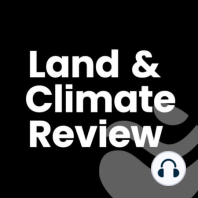22 min listen

CCS: what are the right (and wrong) ways to do carbon capture and storage?
CCS: what are the right (and wrong) ways to do carbon capture and storage?
ratings:
Length:
26 minutes
Released:
Apr 8, 2022
Format:
Podcast episode
Description
Dr. Howard Herzog is a pioneer of carbon capture and storage research, having studied it since 1989 in what is now called MIT's Energy Initiative. He was also a Coordinating Lead Author for the IPCC's 2005 Special Report on Carbon Dioxide Capture and Storage, and he is author of the 2018 book Carbon Capture. Bertie talked to Dr. Herzog about the different forms of CCS, issues around direct air capture's cost, why enhanced oil recovery and CCUS are not the way forward, and what policies need to be put in place to incentivise CCS deployment.Further reading: Read Bertie's series of CCS long reads on Land and Climate:What is happening with carbon capture and storage? Why Carbon Capture and Storage matters: overshoot, models, and moneyCapturing and storing problems Publications by Dr. Herzog from recent years on CCS include:Hard-to-Abate Sectors: The role of industrial carbon capture and storage (CCS) in emission mitigation Applied Energy (2021).Assessment of CCS Technology in a Climate Mitigation Portfolio (CCS Assessment Phase 1 Report) MIT Joint Program Special Report (2019)Read Dr. Herzog's 2018 book Carbon Capture, part of the MIT Press Essential Knowledge series.Click here to visit The Future Unrefined, our curated collection of articles and podcasts on raw materials and extraction. Find more podcasts and articles at www.landclimate.org
Released:
Apr 8, 2022
Format:
Podcast episode
Titles in the series (73)
How Europe funds illegal Russian logging, and why timber sanctions matter by The Land & Climate Podcast